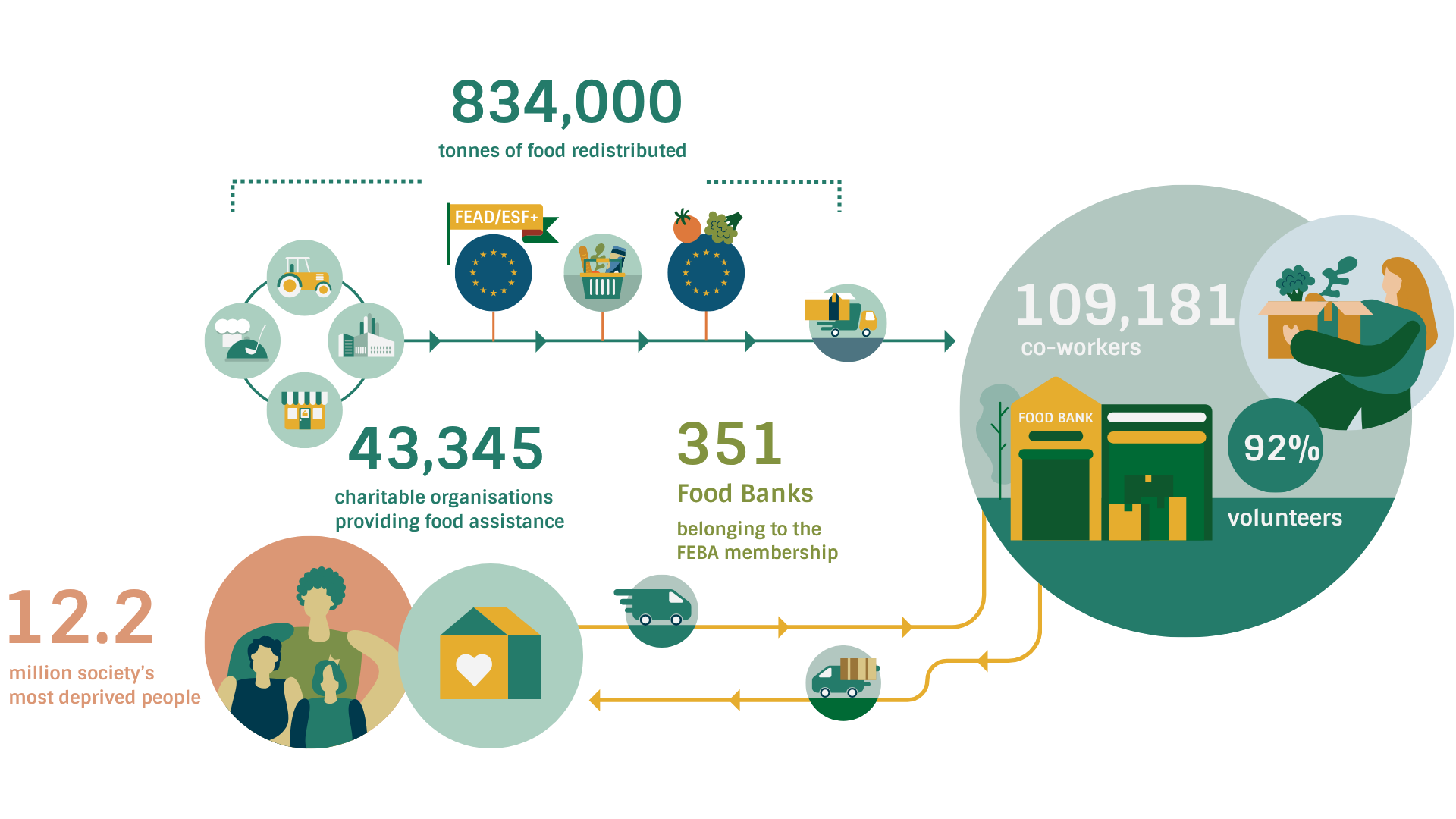Our Mission, Impact & values
Our Mission
To contribute to reducing food insecurity mainly through the prevention of food loss and the support and development of Food Banks in countries where they are most needed.
Our Impact in 2024
Contribution of FEBA membership to our circular economy food system

* This is the aggregation of data reported by FEBA Full Members and Associate Members at the European level. In some countries, such as Estonia, Germany, and the Netherlands, FEBA Members redistribute food not only to other charitable organisations but also directly to end beneficiaries. In the case of Tafel Deutschland e.V., all data refers to 2022, except for co-worker data.
Our Values
Food Banks depend on DONATION and SHARING of food.
Food Banks operations are deployed on four main activities.
1. Supply
Food Banks’ principal aim is to prevent food waste and food insecurity. The “supply” is secured, in the strict respect of the hygiene requirements by recovering surplus food and/or donations from the following sectors:
• Agriculture
• Food processing and manufacturing and distribution
• Hospitality (Hotels – Restaurants – Canteens)
Although the recovered food might no longer be for sale, it must still be safe for consumption at all stages along the supply chain.
In addition to surplus food, Food Banks can also receive food from:
• Public participation through special collections in supermarkets, schools, etc.
• International, EU and/or national food aid programmes.
In principle, the food supplies must be FREE of charge to the Food Bank.
2. Distribution
Food Banks are non-profit organizations, and their operating model may vary from country to country. They are at the service of independent charities combatting food insecurity or they incorporate such charities in their own organization. They organize food distributions through their network of local charities, groups or communities or directly to final beneficiaries, where needed.
As such Food Banks represent a bridge between surplus food and supporting individuals in need. Should Food Banks supply a network of independent charities, an agreement for the purpose of food donation to charities is entered into by each Food Bank and the charitable organizations members of its distribution network. Food Banks may not be able to satisfy the total needs of charitable organizations in terms of food supply.
Food aid is made available to people in need by charities for example in the form of:
• meals in “welfare/social restaurants’’,
• meals known as “soup kitchens” at defined distribution centers,
• food parcels.
3. Operations
Food Banks refuse the primacy of money: their action is based on their willingness to promote active and responsible solidarity.
They engage in witnessing food insecurity and food waste and making the wider public aware of these issues through a dependency on:
• donations of material or equipment,
• subsidization of operating or investment expenses by third parties,
• contribution of charities to the running expenses.
4. Existence
Food Banks exist mainly through the action of volunteers and charities with different spiritual and human inspiration. Food Banks will ensure that they, any of their volunteers or paid staff, and their networks will avoid any type of discrimination towards the beneficiaries.
This Charter constitutes the formal engagement of each member of the European Food Banks Federation to observe its principles. The formal signature of the European Food Banks Federation Charter is required to existing and new Full or Associate Members.



